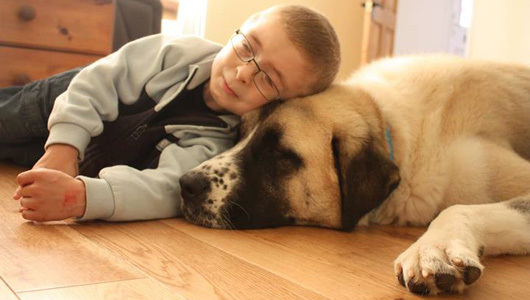Pet Adoption - Be Prepared for the Responsibility
 October is National Adopt-a-Shelter-Dog Month, a prime opportunity to visit your local humane society, animal shelter, or pet rescue organization. But, before you jump into the realm of dog (or cat, or any pet) adoption, consider the responsibility of caring for a pet.
October is National Adopt-a-Shelter-Dog Month, a prime opportunity to visit your local humane society, animal shelter, or pet rescue organization. But, before you jump into the realm of dog (or cat, or any pet) adoption, consider the responsibility of caring for a pet.Likely you've seen the TV ads: sorrowful eyes staring out from cages. You've heard the plea: help shelter pets. You may have even heard the longing in your child's voice: “Can we PLEASE get a dog?!” All pluck at your heart like a harp string, making you seriously consider adding a dog to your household.
But, you have questions – good for you! Your pondering shows responsibility, and that’s crucial of a dog owner. What else? Well, here are some things to consider:
Responsible Adoption
NEVER get a dog on impulse! God gave humans dominion, but we are to take care of His creatures in a responsible, caring way. A dog is a life that will be your responsibility. Don’t be a statistic and don’t let your dog be one either. More than seven million dogs come into shelters annually, and of those, nearly three million are killed because not enough people adopt shelter dogs (about 20 percent of dog owners adopt) and only about 25 percent of stray dogs are reclaimed. Adoption often saves a dog's life.
For some people the breed is vital. Not all shelter dogs are “mutts” – nearly 25 percent are purebred. Therefore, if having a setter or sheltie ranks high for your family, begin looking at your local shelter. Additionally, nearly every dog breed has a rescue organization associated with it. For information on purebred dog rescues, visit http://www.akc.org/breeds/rescue.cfm.
Just because it's in rescue or shelter doesn't mean there's something wrong with the dog; many are turned in because an owner loses a house or dies, therefore, the animal is relinquished. Locate a shelter or rescue near you at http://www.petfinder.com/.
Understand Dog Breeds
Research the breeds and choose a dog that fits your lifestyle. For example, if you live in an urban apartment, getting a border collie is not the most wise decision. These dogs are energetic, need room to run, and are herders. If you have small children at home, choosing a breed that is known to be affectionate with kids, such as golden retrievers or beagles, would be better than adding a Chow Chow or chihuahua. Learn about dog breeds at http://www.akc.org/dog-breeds/.
Like people, dogs are individuals and, depending upon the background and former family, one that, in general, is considered good with kids may not be if that particular dog hasn't been around children. Therefore, brush up on the dog breeds in general and also learn as much as you can about the the dog you're considering. The shelter/rescue staff will provide you with as much information as they can – don't be afraid to ask questions.
Puppy or Not?
Puppy, middle-aged, senior … what age is best? That again depends upon your lifestyle. Can you handle all the training, including housebreaking, a puppy needs? Do you have the time and patience to deal with chewing, whining, and other challenges a puppy poses? Baby dogs are similar to baby humans – they require time, attention, and training.
Teenaged dogs, adult dogs, and senior dogs all offer benefits: (1) they generally are the size they will be and (2) they may already be housebroken. However, teenaged dogs tend to be hyper and get into trouble (like many teen kids), but if you're patient, willing to train, and can put up with some shenanigans occasionally, that age may work for you.
Consider adults and seniors. Adult dogs are more calm than teenagers or puppies, and senior-aged and smaller breeds don't require much exercise. Therefore, if you're not very active or not home a lot, if you don't have a large yard or a community dog park nearby, then an older, less lively breed might be more suitable. Also, by adopting an older dog, you are likely saving its life – senior dogs are less likely to find homes, yet their devotion is just as strong as, sometimes stronger than youngsters because they have already known family life.
Training
Obedience training is a primary key, no matter the age or breed. Basic commands like “sit,” “stay,” “come,” and “no” help bring calm from chaos and also help keep your dog safer. There are many training options, from doing it yourself to hiring a professional. Community kennel clubs, PetCo and PetSmart stores, and some rescues and shelters offer obedience classes. Check what's available in your community and make the time to take this critical step with your dog.
Images of wagging tails, drooling mouths, and lapping tongues conjure up smiles. Adding a dog to one's home can and should be a blessing, but there are important steps to take beforehand. Do your homework, understand your lifestyle, and be committed to caring for a dog for its lifetime Doing these things will keep you, your family, and your new furry friend happy for a lifetime! Take some time in October to consider adopting a new friend during National Adopt-a-Shelter-Dog Month.

Published on September 30, 2016 15:31
No comments have been added yet.



